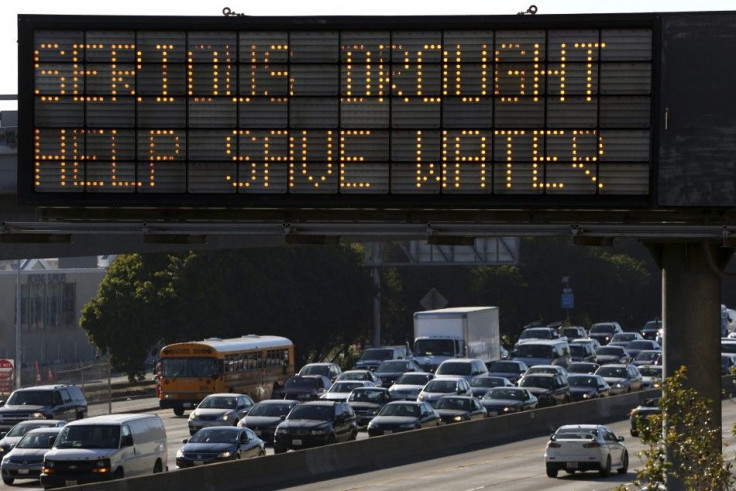California Proposes To Set Aside $1 Billion To Help Manage State’s Drought

As California enters its fourth year of drought, Gov Jerry Brown unveiled on Thursday in a news conference a $1 billion emergency legislation to help the state find a solution to the problem. However, the proposal generated criticisms because two-thirds of the amount was for flood control projects worth $660 million.
Brown explained the large amount of money funded for flood control to climate change and global warming, which are extreme weather events that require the water issue to be addressed.
The money is the measure that California voters approved in a 2006 flood control bond, reports Mercury News. By speeding up spending on water recycling and desalination projects aimed to ease the hardships for the next major drought, it does not do much to alleviate the current situation, green groups complain.
Environmental groups are instead pushing for more restrictions on watering of lawns, speeding up the implementation of a measure passed in 2014 that makes it compulsory for farmers to measure groundwater pumping and hiking hefty fines on water wasters. Conner Everts of the Environmental Water Caucus complained that conservation must be top priority, but it isn’t.
Senate President Pro Tempore Kevin de Leon stressed that the lack of water is the greater crisis that California faces today, reports NBC. The U.S. Drought Monitor report released last week said that almost 40 percent of California is under the exceptional drought category.
While Brown declared a statewide drought in January 2014 wherein he asks residents of the state to reduce water use by 20 percent, from June 2014 through January 2015, they only cut it by 9.7 percent. The governor attributed the lower rate of reduction to people taking a longer time to grasp unprecedented change.
In November, California voters approved a $7.5 billion water bond, of which $2.7 billion are for water storage problems, although it would probably take more than 10 years before new dams and reservoirs are built.
Other recent measures to address the drought include a ban by the State Water Resources Control Board for restaurants to serve water, unless the diner asks for it and signs in hotel rooms for guests that they may choose not to have their towels and linens changed and washed every day.
To contact the writer, email: v.hernandez@ibtimes.com.au





















